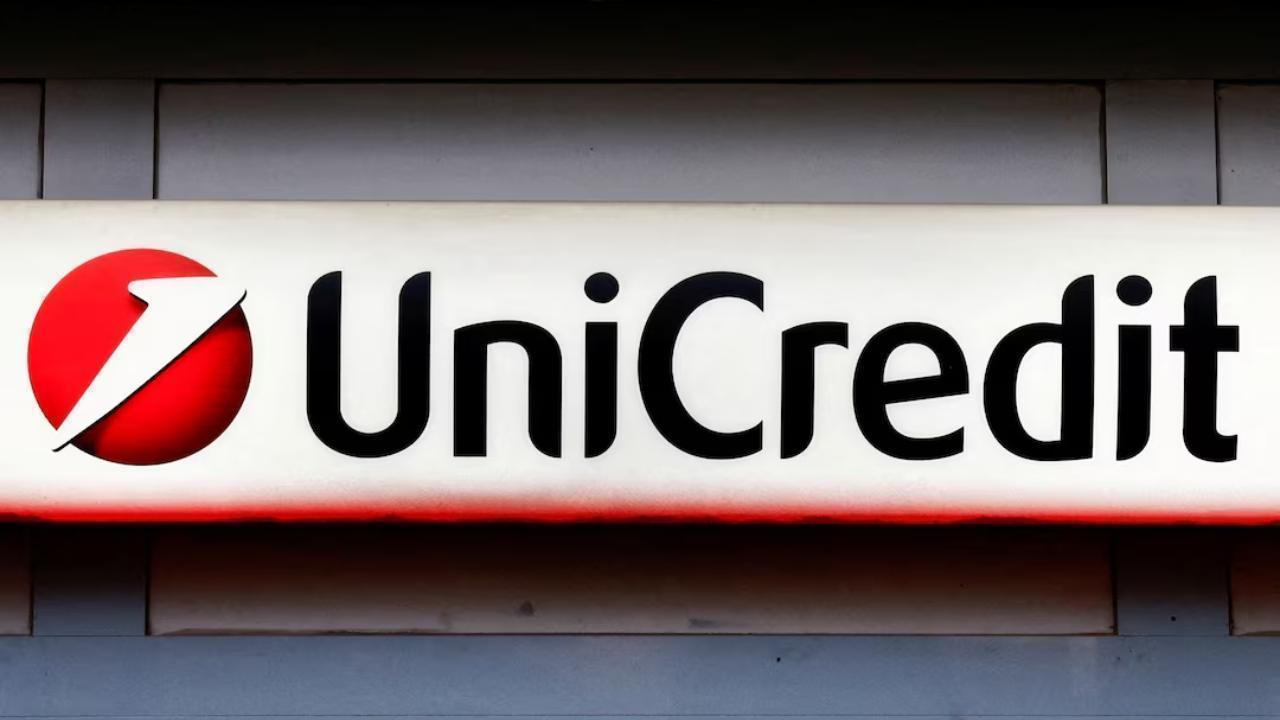
Post by : Monika
Photo: Reuters
About a year ago, Italy’s largest bank, UniCredit, began buying shares in Germany’s Commerzbank, one of the country’s leading banks. UniCredit’s initial plan was to explore the possibility of a merger between the two banks. While a full merger has not happened yet, UniCredit’s involvement has significantly influenced Commerzbank’s operations.
Over the past year, Commerzbank has made major decisions, including leadership changes, job reductions, and a sharper focus on profitability. UniCredit’s strategy and its position as a large shareholder have applied pressure on Commerzbank, encouraging the German bank to adapt and restructure its business to remain competitive.
UniCredit’s Strategy
UniCredit’s CEO, Andrea Orcel, has been very clear about his long-term plan to merge UniCredit and Commerzbank. He believes such a merger would create a stronger bank that can compete more effectively in Europe. To achieve this goal, UniCredit gradually increased its stake in Commerzbank, making it the largest shareholder.
By holding a significant portion of Commerzbank shares, UniCredit gained influence over the bank’s strategic decisions. This does not mean UniCredit controls Commerzbank directly, but it does allow UniCredit to apply pressure on management to implement reforms that could increase value for shareholders and potentially pave the way for a merger in the future.
Commerzbank’s Response
Faced with UniCredit’s growing influence, Commerzbank has responded in several ways to maintain its independence and improve performance.
Leadership Changes
One of the most significant changes was in leadership. Commerzbank appointed Bettina Orlopp, previously the bank’s finance chief, as the new CEO. Her promotion signals a strategic shift in Commerzbank’s operations. Leadership changes are often a response to shareholder pressure, as fresh management can implement reforms and increase confidence among investors.
Restructuring and Job Cuts
Commerzbank also announced a major restructuring plan. The bank is set to reduce its workforce by approximately 3,900 employees. This is a considerable number, and it represents part of the bank’s efforts to reduce operating costs and improve efficiency. Restructuring is a common strategy in banking to ensure that operations remain competitive while profitability improves.
The job cuts are not just about saving money; they also help Commerzbank focus on more strategic areas of its business. By streamlining operations, the bank can invest more in digital services, cloud technology, and other modern banking solutions.
Focus on Profitability
Another key area of focus for Commerzbank is profitability. The bank has set new targets to improve its financial results. This includes increasing revenue, reducing costs, and enhancing shareholder value. Commerzbank wants to demonstrate that it can be strong and independent, even while UniCredit holds a significant stake.
Profitability is critical in banking because it affects investor confidence, stock price, and the bank’s ability to expand in competitive markets. Commerzbank’s renewed focus on profits shows that it is serious about improving its business performance while navigating shareholder pressures.
Market Reaction
The market responded positively to Commerzbank’s efforts to reform and restructure. Since UniCredit’s initial investment, Commerzbank’s share price more than doubled. This indicates that investors are optimistic about the bank’s ability to implement reforms and improve financial performance.
Analysts have noted that while Commerzbank still faces challenges, such as cost efficiency and international competition, the bank has made significant progress in improving operations. Investors are watching closely to see if Commerzbank can sustain this growth and maintain independence while accommodating UniCredit’s influence.
UniCredit’s Position
Despite Commerzbank’s resistance, UniCredit has not abandoned its long-term plan. CEO Andrea Orcel emphasized that UniCredit intends to maintain and even increase its stake in Commerzbank. Initially, UniCredit was invited to invest in Commerzbank, and over the past year, it has doubled its equity stake to about 20%, with plans to reach 29% through derivative conversions.
Orcel believes that a merger would be beneficial not only for the banks but also for the German economy. He argues that combining UniCredit and Commerzbank would create a stronger, more competitive European banking institution capable of facing international competition from banks in the United States and Asia.
Why UniCredit Is Interested
Commerzbank’s Challenges
Impact on Employees and Stakeholders
The restructuring and job cuts have a direct impact on Commerzbank employees. While layoffs are difficult, the bank argues that these changes are necessary for long-term stability. Employees affected by job cuts may receive severance packages or assistance with finding new employment.
For stakeholders, including investors and customers, the changes signal that Commerzbank is taking steps to improve efficiency and profitability. Strong performance benefits shareholders through higher stock prices, while customers benefit from more reliable and modern banking services.
Future Outlook
Lessons from the Year
Over the past year, UniCredit’s involvement in Commerzbank has triggered significant changes within the German bank. From leadership promotions and job reductions to a sharper focus on profitability, Commerzbank has responded to shareholder pressure while striving to maintain its independence.
While a full merger has not yet occurred, the effects of UniCredit’s investment are clear. Commerzbank is becoming more efficient, focused, and competitive, reflecting both internal reforms and external influence.
As the situation continues to develop, the banking world will be watching closely. Whether a merger ultimately happens or Commerzbank remains independent, the past year demonstrates the power of strategic investments and shareholder activism in shaping the future of major financial institutions.
UniCredit and Commerzbank’s ongoing interactions provide a real-world example of how large banks navigate shareholder pressure, market expectations, and the challenges of operating in a competitive European banking sector.
UniCredit










Is Political Violence in the US Increasing? Key Events Timeline
Explore the timeline of rising US political violence, key attacks, expert insights, and its impact o

Keto Diet and Mental Health: New Surprising Benefits Found
Discover how the keto diet reduces depression symptoms and enhances brain health. Learn about keto’s

China faces heavy losses from natural disasters in August
Natural disasters in China during August caused $2.8 billion in losses, affected over 10 million peo

Brazil to Propose New Forum for Climate and Trade Talks at COP30
Brazil plans to create a new international forum to discuss how climate policies impact trade, aimin

Brazil's Citrus Industry Hit Hard by Greening Disease
Nearly half of Brazil's citrus belt is affected by greening disease, leading to significant losses i

Sea Shepherd Removes Illegal Octopus Traps in Greece
Sea Shepherd volunteers in northern Greece have removed thousands of illegal octopus traps, rescuing